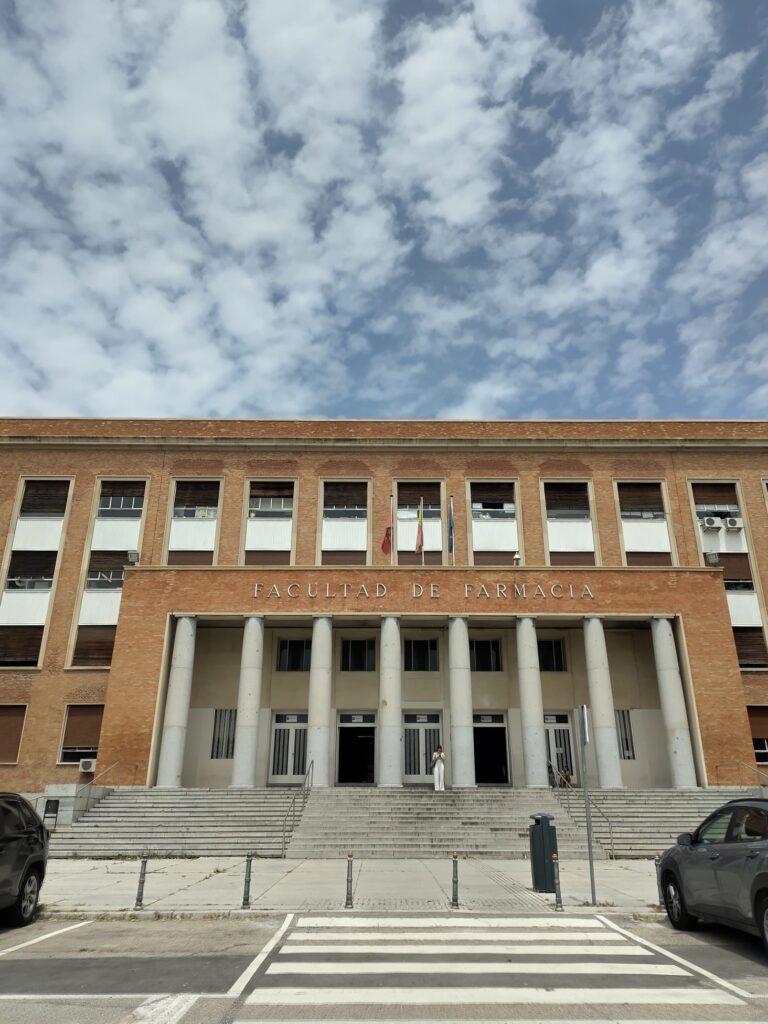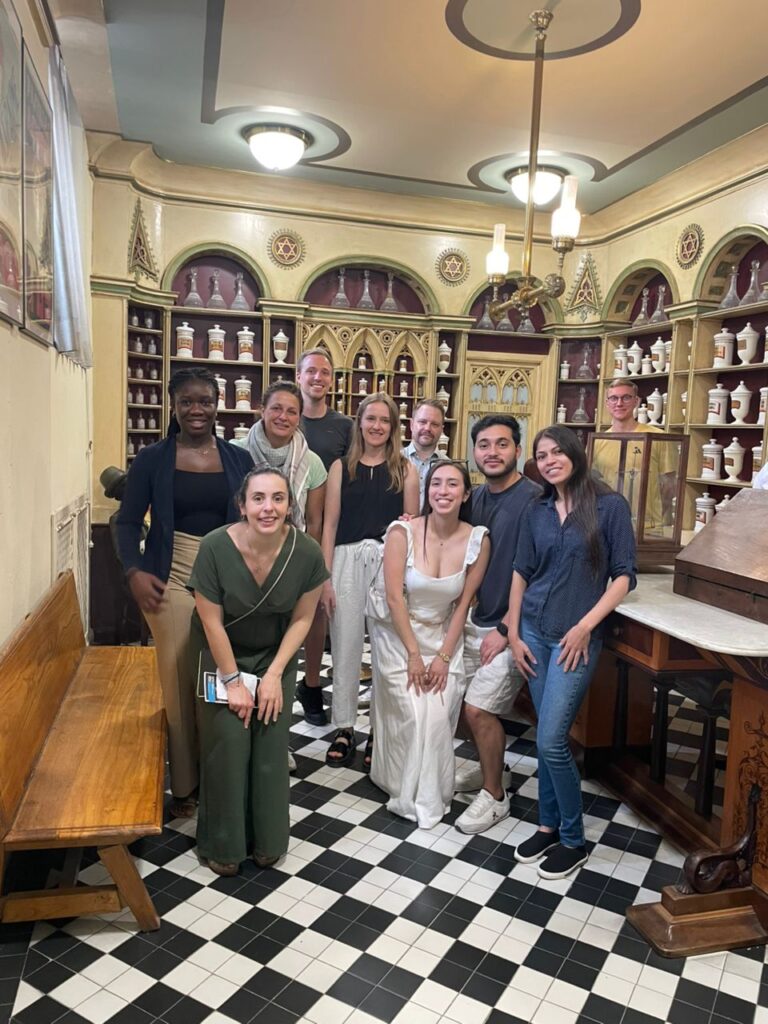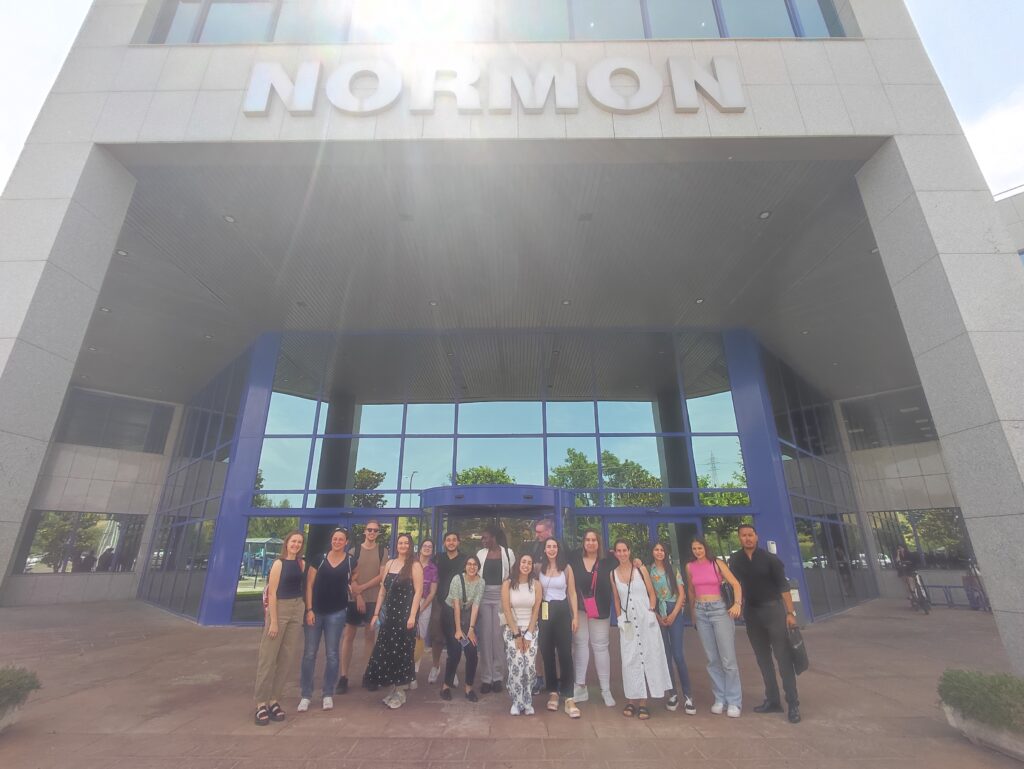In this blog post from Dr Christiana Hebel, who graduated from the One Health MSc programme in 2023, we are treated to a perspective from the Middle East. Christiana shares her motivations for pursuing her studies and insights into the project that she developed for her dissertation. As a falcon vet, she chose to study the potential for bacteriophages to be developed as a possible way of addressing the antimicrobial resistance challenges that falcon medicine faces.
A falcon vet broadens their horizons
15 years after graduation from vet school, I felt the need to broaden my professional horizons, while navigating life in the Middle East, with its mix of nationalities and varied cultural and educational backgrounds.
This realisation marked the start of my Master’s journey in One Health, a programme that fitted perfectly into the challenges falcon medicine is facing in the United Arab Emirates (UAE). This experience profoundly underscored just how interconnected our world is, even within highly specialised fields.
My Master’s research explored the evolving challenges within falcon medicine. Falconry, a tradition deeply woven into Emirati culture, has seen significant changes due to advancements in captive breeding and a change from hunting to falcon racing, resulting in a surge of imported falcons. This large influx, while celebrating the sport and the culture, introduces novel and complex challenges for veterinarians.
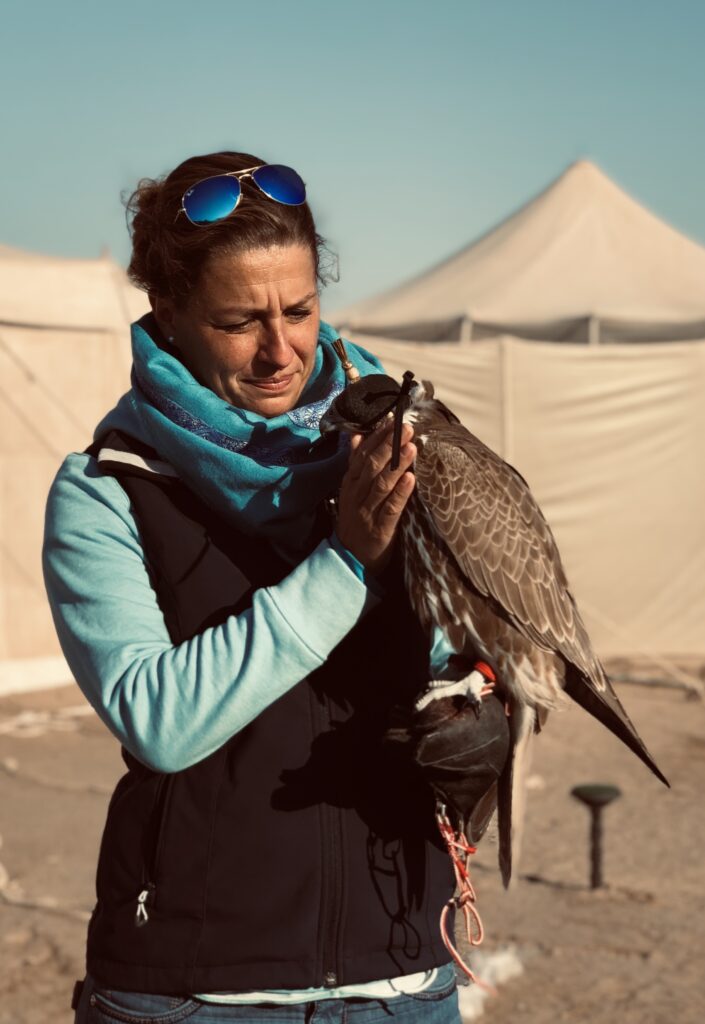
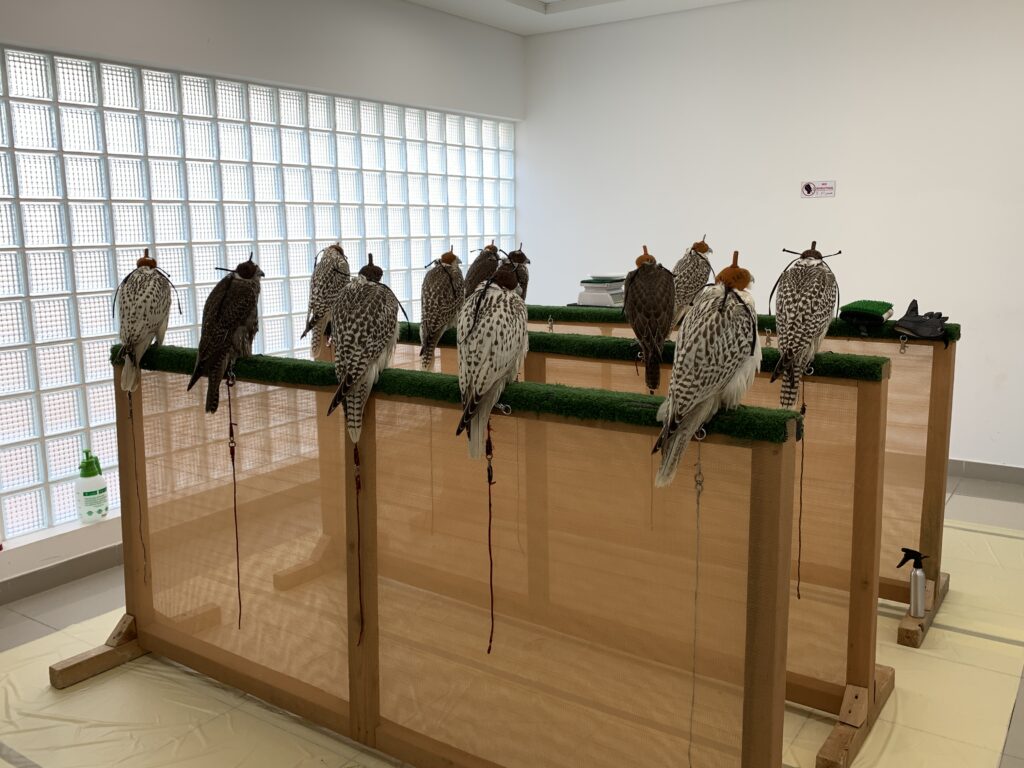
My thesis investigated the critical issue of Antimicrobial Resistance (AMR) in falcon medicine. Stress, often exacerbated by intensive housing systems, can compromise falcons’ immune systems, significantly increasing their susceptibility to infections, particularly from opportunistic pathogens like Pseudomonas aeruginosa. The widespread, often unregulated, availability of over-the-counter antibiotics, as well as a general lack of awareness regarding the impact of AMR, made me start to investigate bacteriophages – viruses that specifically target and kill bacteria- as a potential alternative to antibiotics in falcons.
The intense use of antibiotics in animals contributes to the development and spread of drug-resistant bacteria, posing a serious threat to both animal and human health. This growing concern ignited my interest in exploring innovative solutions. Understanding their potential to combat resistant infections in falcons, and potentially other animals, became a key area of focus within my broader One Health research.
Undertaking an online Master’s degree while managing a demanding full-time job was undeniably challenging. It was frequently overwhelming, requiring considerable sacrifices of personal time and other activities. Nevertheless, the opportunity to combine my clinical experience with research, and to connect with colleagues around the world, was truly fascinating. Despite many hurdles, I enjoyed studying the core essence of One Health — a profound recognition that human, animal, and environmental health are deeply linked.
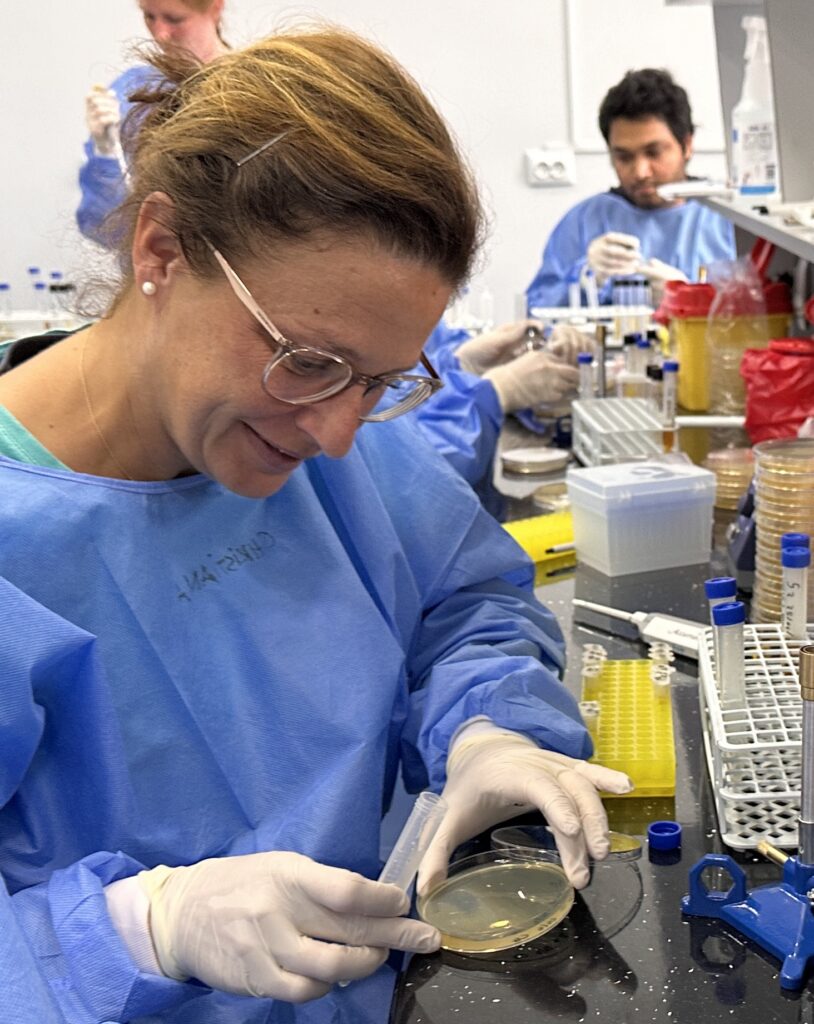
The insights I gained during my three-year Master’s in One Health, combined with the experience of global collaboration with my colleagues, have deepened not only my understanding of emerging infectious diseases but also the critical impact of husbandry on animal well-being, and the urgent need for antimicrobial stewardship and alternative therapies like bacteriophages.
This Master’s journey was an insightful and inspiring experience that I believe will profoundly shape my approach as a veterinarian. I wholeheartedly recommend it to others.
